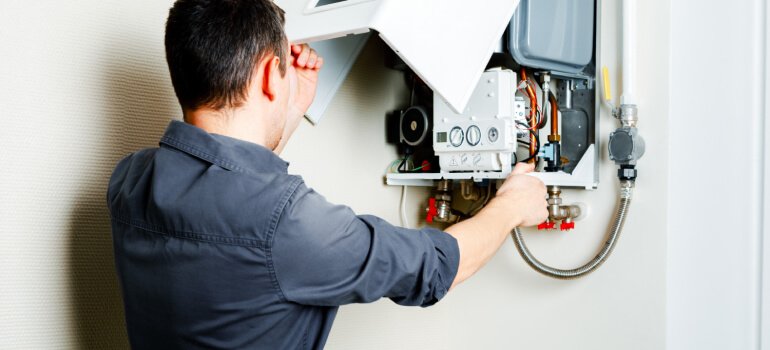- Nestguard Home Care
- Hydronic Heating
Hydronic Heating

Hydronic Heating
Hydronic heating is a highly efficient and comfortable method of warming your home or commercial space using heated water. At NestGuard Home Plans, we specialize in the installation, repair, and maintenance of hydronic heating systems, including radiant floor heating, baseboard heaters, and boiler systems. These systems work by circulating hot water through sealed pipes to radiators or underfloor tubing, delivering consistent warmth without blowing air or stirring up allergens.
Our licensed technicians ensure precise installation and optimal system performance tailored to your property’s needs. Whether you’re upgrading your current system or looking to install a new one, we provide energy-efficient solutions that offer long-term comfort and lower utility costs.
What Are The Benifits
Hydronic heating offers a range of significant benefits, making it an excellent choice for home and business owners alike. One of the main advantages is its energy efficiency—it uses less energy than traditional forced-air systems, resulting in lower utility bills. This system provides consistent, even heat throughout your space, eliminating the hot or cold spots often found with other heating methods. Additionally, hydronic heating improves air quality because it doesn’t blow dust or allergens around, which makes it ideal for those with allergies. The system operates quietly, with no noisy fans or blowers, ensuring a peaceful environment.
- Consistent, Even Heat
- Improved Air Quality
- Low Maintenance
- Increased Comfort


Zoned heating allows for precise temperature control in different areas, optimizing comfort and energy use. Hydronic systems also require low maintenance due to fewer moving parts, leading to fewer repairs and a longer lifespan. The increased comfort of radiant floor heating is another major benefit, keeping your floors warm and the room cozy. Plus, the system’s space-saving design eliminates the need for bulky ductwork, maximizing your available space. With all these benefits combined, hydronic heating delivers an efficient, quiet, and comfortable solution for any property.
Any questions? We're here to help
How do I prevent frozen pipes in the winter?
To prevent frozen pipes in winter, insulate exposed pipes and keep your home’s temperature consistently above 55°F, even when you’re away. Let faucets drip slightly during extreme cold and open cabinet doors to allow warm air to reach indoor plumbing. Seal any cracks or gaps where cold air can enter to keep your pipes protected.
What Should I Do If I Have A Leaky Faucet?
If you have a leaky faucet, start by turning off the water supply to prevent further dripping and water waste. Then, check if the issue is due to a worn washer, loose part, or damaged cartridge — all of which are relatively easy to replace. If you're unsure or the leak persists, it’s best to call a licensed plumber to avoid potential water damage or higher utility bills.
How Often Should I Flush My Water Heater?
You should flush your water heater at least once a year to remove sediment buildup that can reduce efficiency and shorten the lifespan of the unit. If you have hard water, consider flushing it every 6 months. Regular flushing helps maintain consistent water temperature, improves energy efficiency, and prevents corrosion or clogs.

